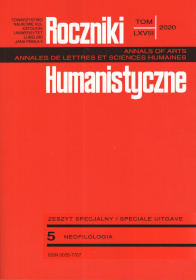Het belang van sociaal tolken als instrument van tolerantie in het kader van de huidige vluchtelingen- en arbeidsmigratie
The Importance of Social Interpreting as an Instrument of Tolerance in the Context of Current Refugee and Labour Migration
Author(s): Pavlína Knap-Dlouhá, Kateřina KřížováSubject(s): Philosophy, Social Sciences, Language and Literature Studies, Ethics / Practical Philosophy, Sociology, Migration Studies, Translation Studies
Published by: Towarzystwo Naukowe KUL & Katolicki Uniwersytet Lubelski Jana Pawła II
Keywords: community interpreting; community translation; IGA; PACI; interpreting studies; multilingualism; institutionalisation
Summary/Abstract: As a result of social changes in society in Western Europe at the end of the 20th century, it was recognised that a new perspective on interpreting science was needed. For a long time, community interpreting was ignored or considered inferior in comparison to the dominant interpreting mode, namely, conference interpreting.Intensifying trade contacts and labour migration within the European Union have, in combination with the current influx of refugees, led to a high demand for interpreting services in the field of social and legal interpreting. Additionally, there is only a limited number of qualified interpreters available on the market, especially in combinations of less widely-spoken languages. The lack of qualified community interpreters and translators has direct consequences for delays in the functioning of certain government bodies and social services. The same applies to the quality of healthcare provided and to the social climate. Increasing the scale of interpreting and translation assignments, changing the professional profile of the interpreter and raising the demand for the provision of language services in specific language combinations are clear signals for small philological departments to offer their students the opportunity to specialise in this area. For this reason, two projects are presented in this article, both of which aim at promoting know-how in the field of social interpreters and at developing modules in social interpreting and translation.
Journal: Roczniki Humanistyczne
- Issue Year: 68/2020
- Issue No: 5S
- Page Range: 83-94
- Page Count: 12
- Language: Dutch

